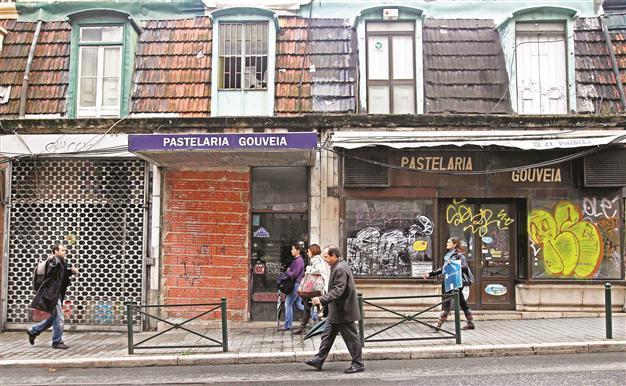Portugal requires extra debt effort
LISBON - The Associated Press

People walk past closed shops in downtown Lisbon on Oct 25. The IMF has warned that risks to Portugal’s bailout plan have ‘increased markedly.’ REUTERS photo
Portugal’s financial recovery program is entering a risky phase as it struggles to cut its heavy debt load amid a continuing recession, growing unemployment and mounting opposition to austerity measures, the International Monetary Fund said on Oct. 25.The government’s debt-reducing measures have helped allay market concerns about lending money to the ailing country, while it has made good on promises of reforms in return for last year’s 78 billion euros ($100 billion) bailout, the IMF said in a report on Portugal’s progress.
But “risks to the attainment of the program’s objectives have increased markedly,” the IMF said, adding that Portugal will need to take further steps to remain on track.
The IMF, the European Central Bank and the European Commission granted Portugal a lifeline to avert looming bankruptcy as the country was engulfed by the eurozone’s financial crisis. A decade of average annual growth below 1 percent and mounting debt spooked investors who worried they might not get their money back if they loaned to Portugal.
Though Portugal is one of the eurozone’s smaller members in economic terms, the success of its three-year bailout program is seen as crucial for containing Europe’s debt woes. Fellow eurozone countries are growing tired of offering new bailouts as many struggle with high debts of their own.
The center-right government has made important strides to restore Portugal’s fiscal health, the IMF said, but its economy remains frail and at the mercy of international economic developments amid a broad slowdown in growth.
“An improvement in the broader euro area economic environment will be critical to the program’s success,” the report said.
The government and the IMF predict an economic contraction of 1 percent in 2013 for a third straight year of recession.
















